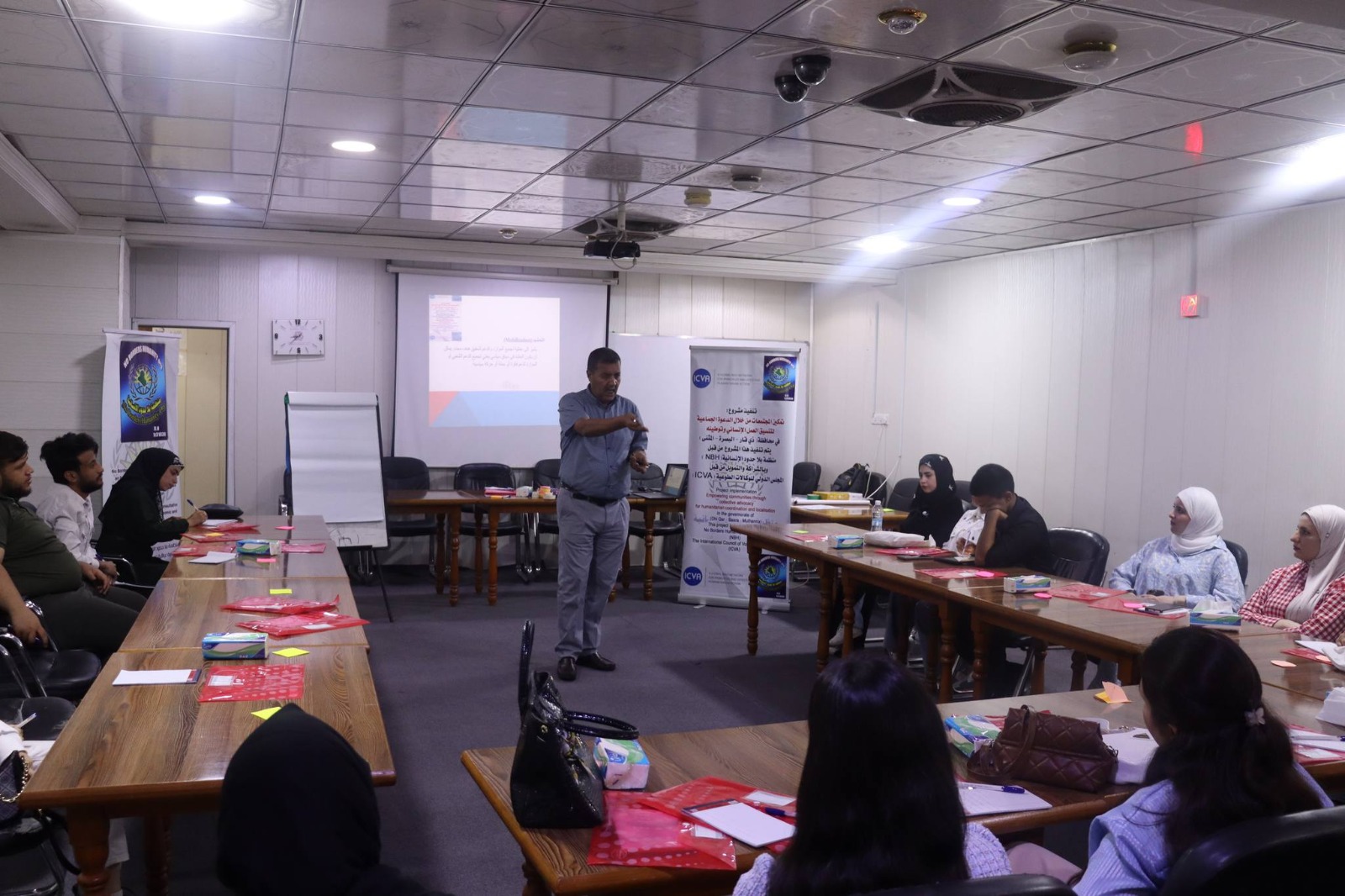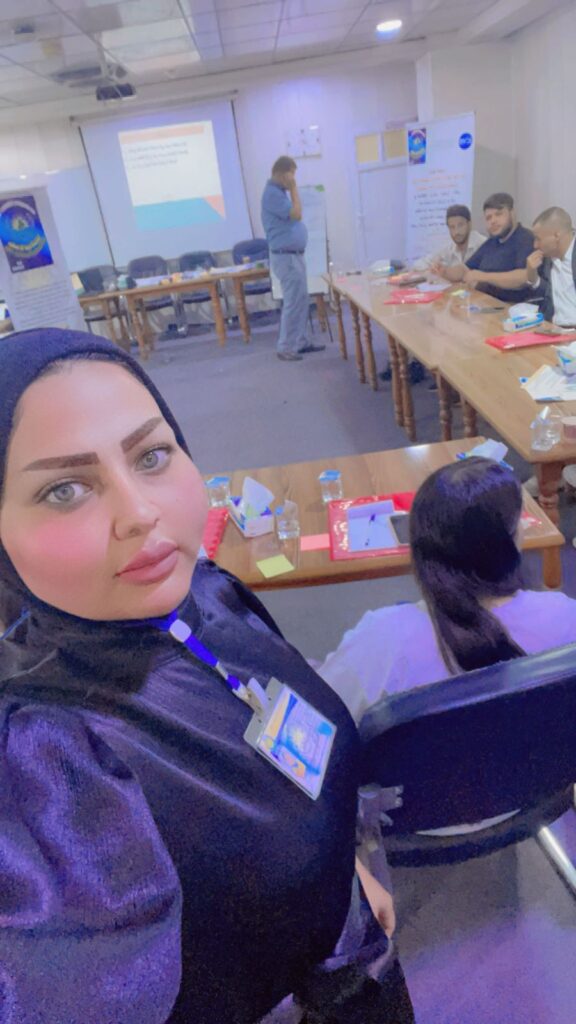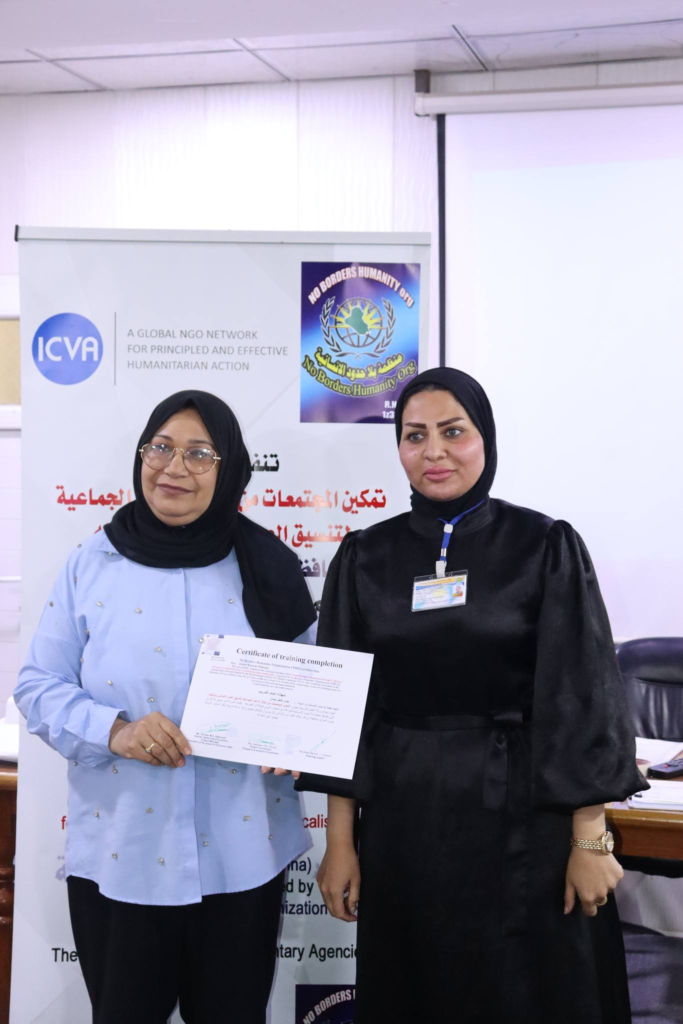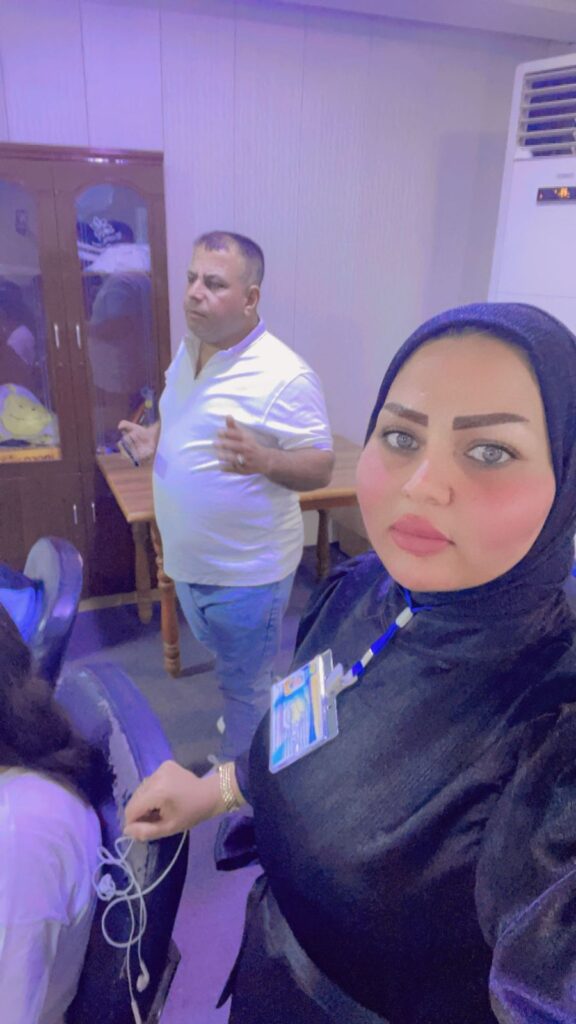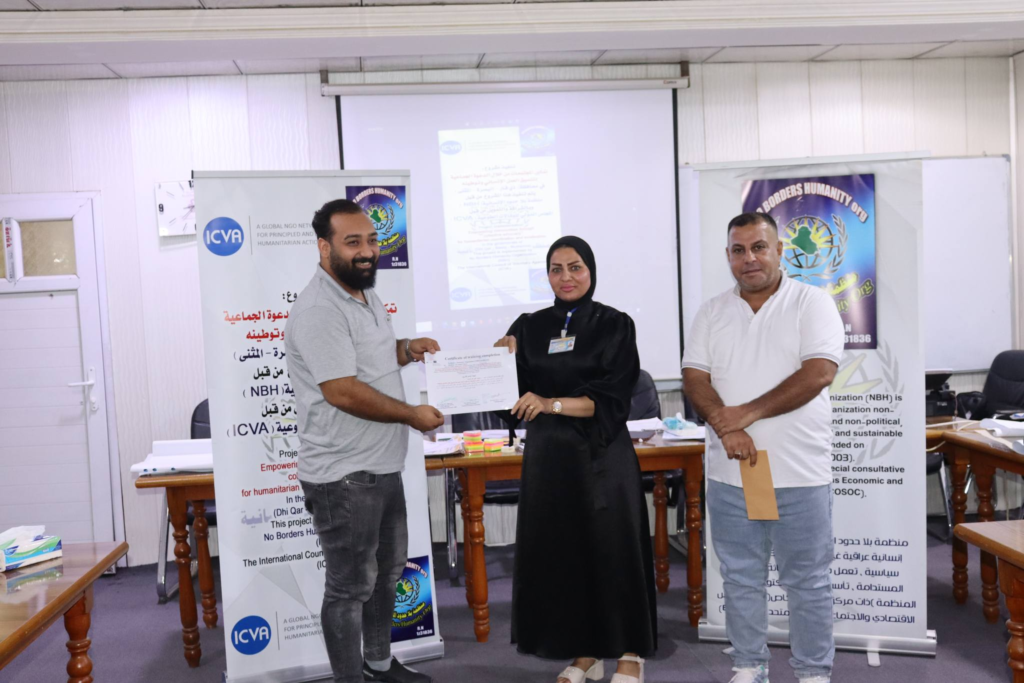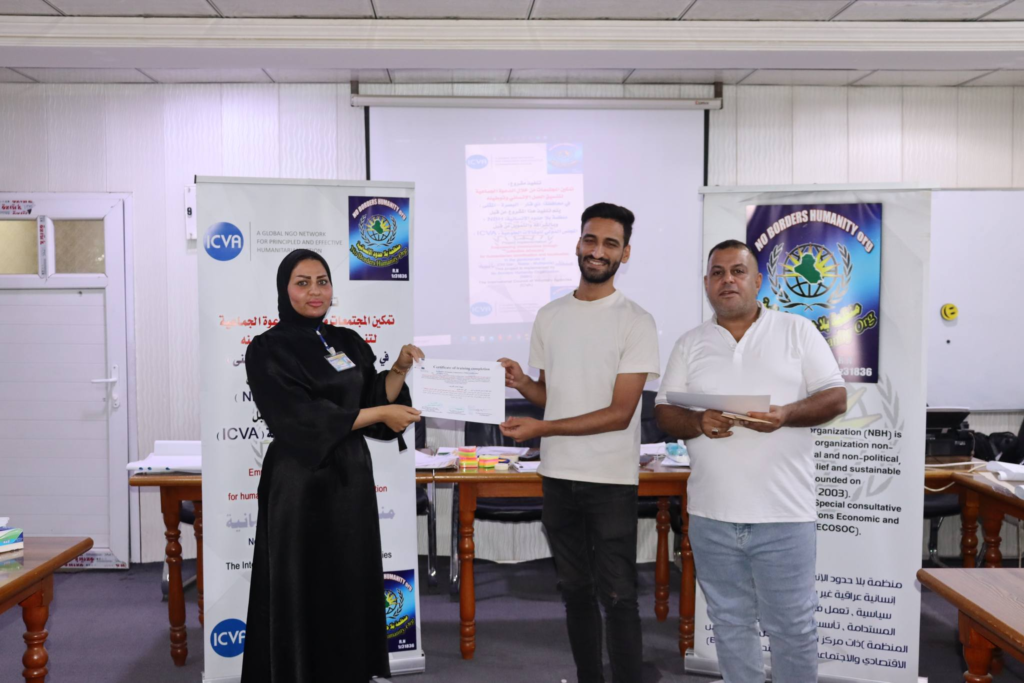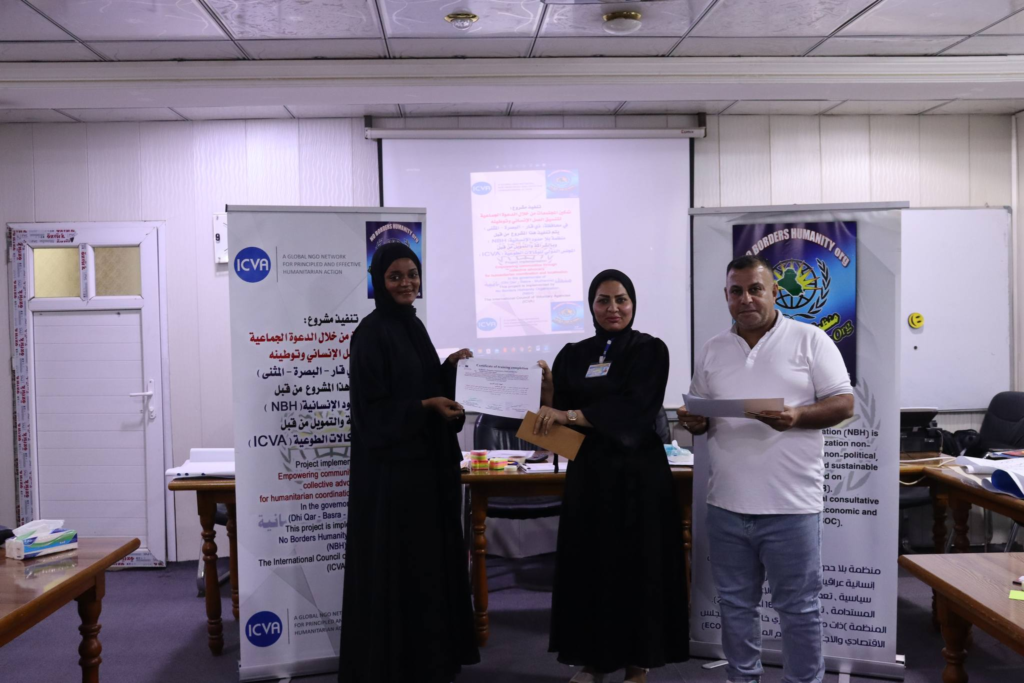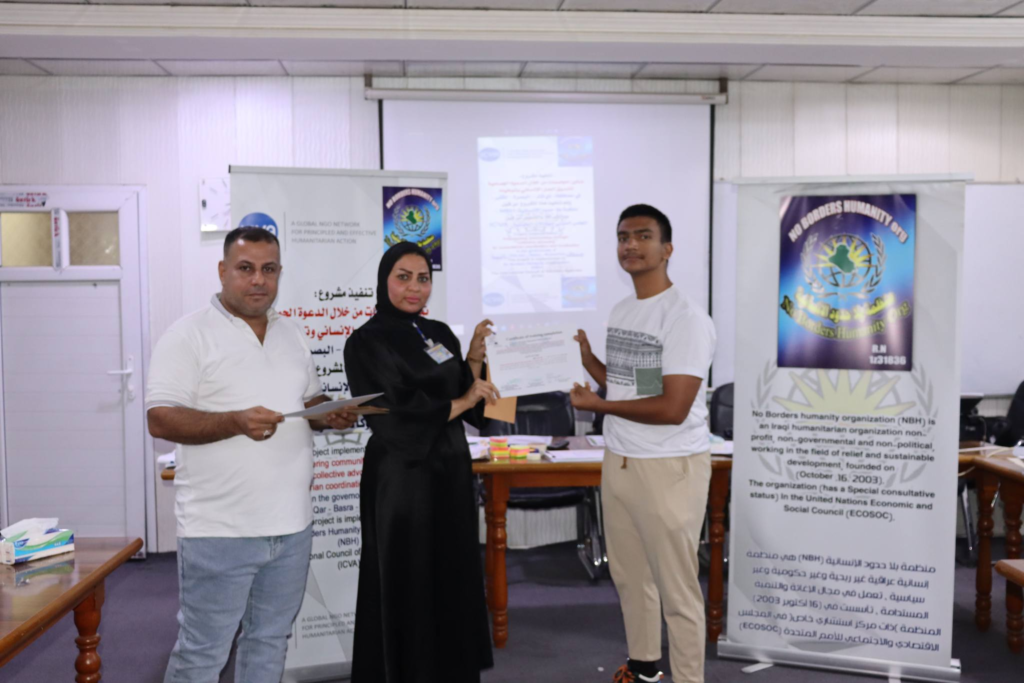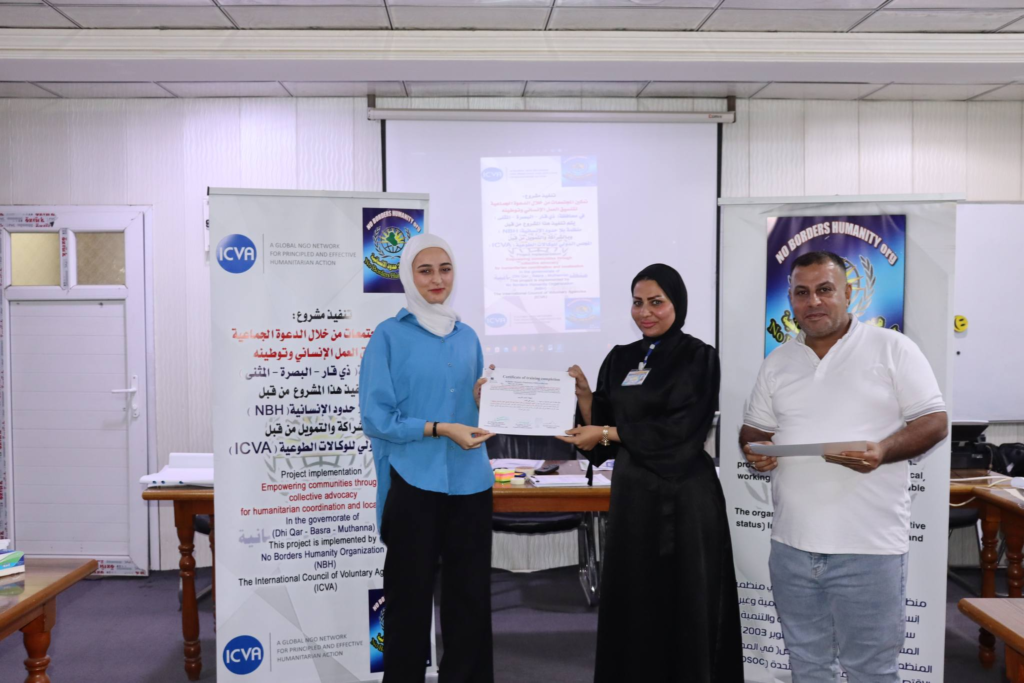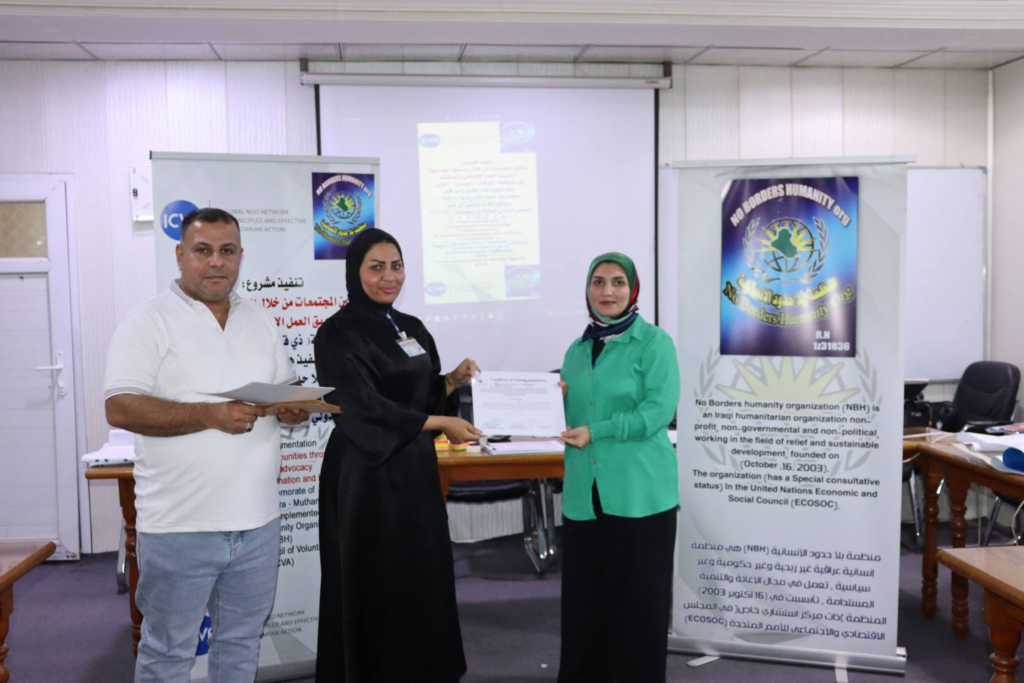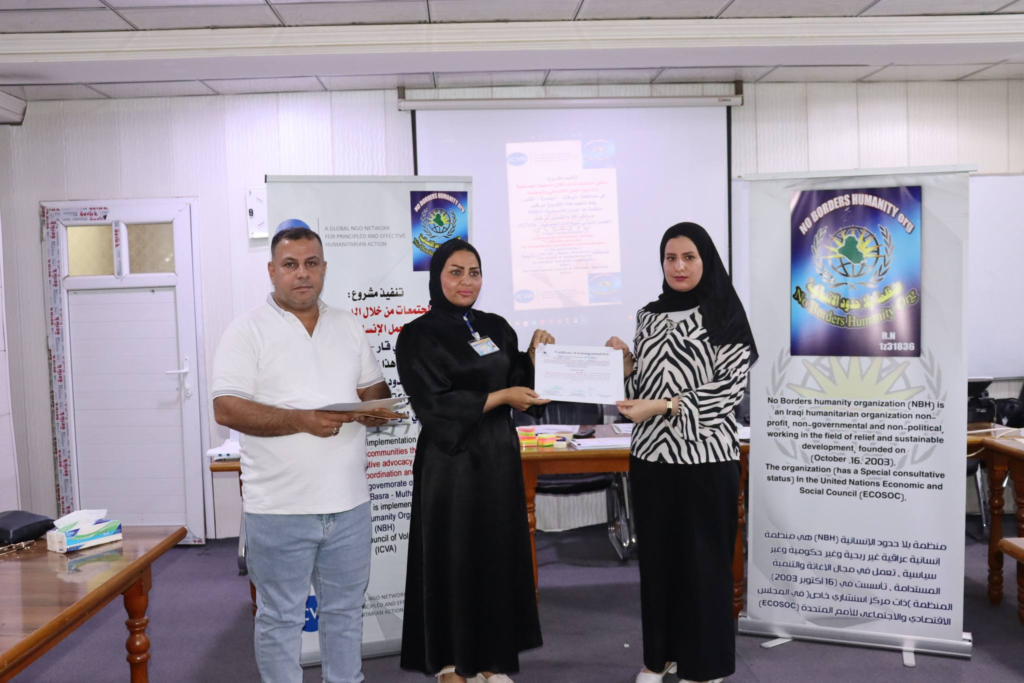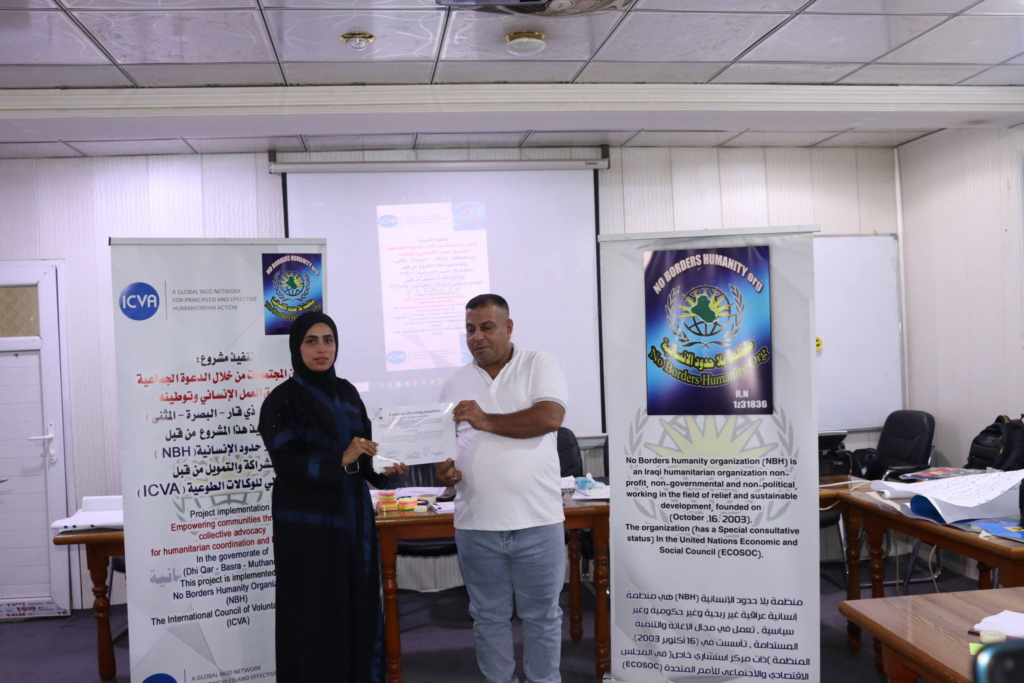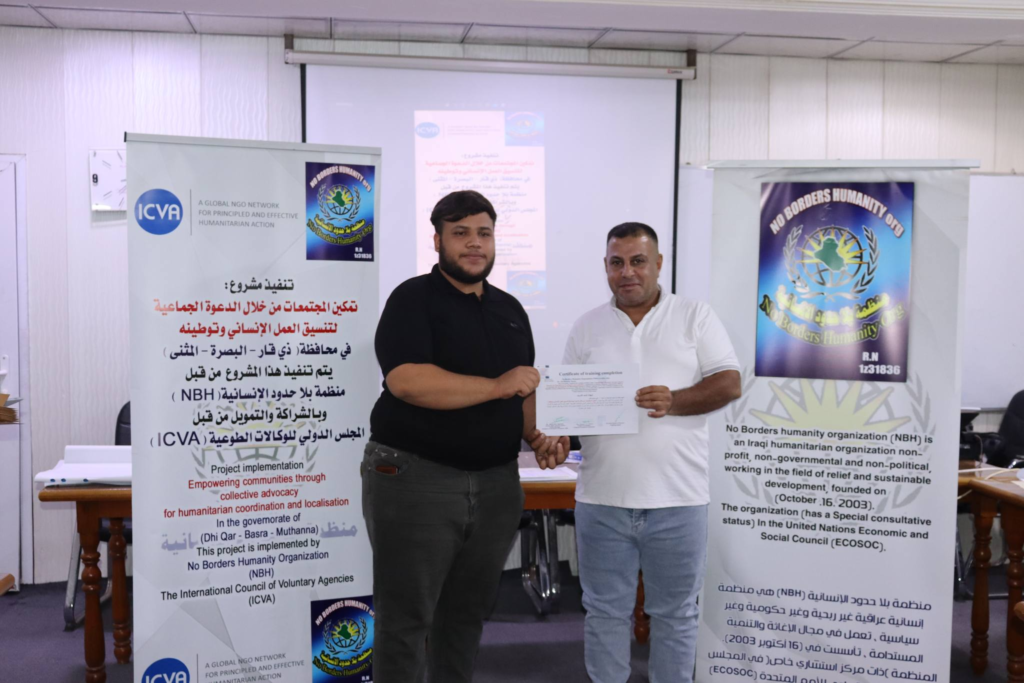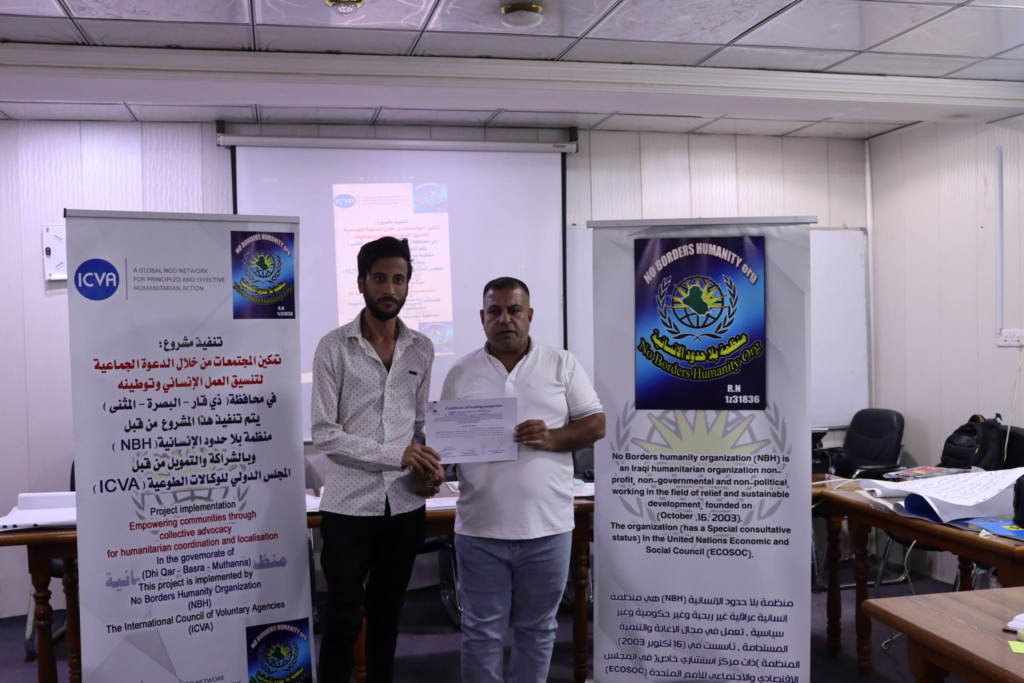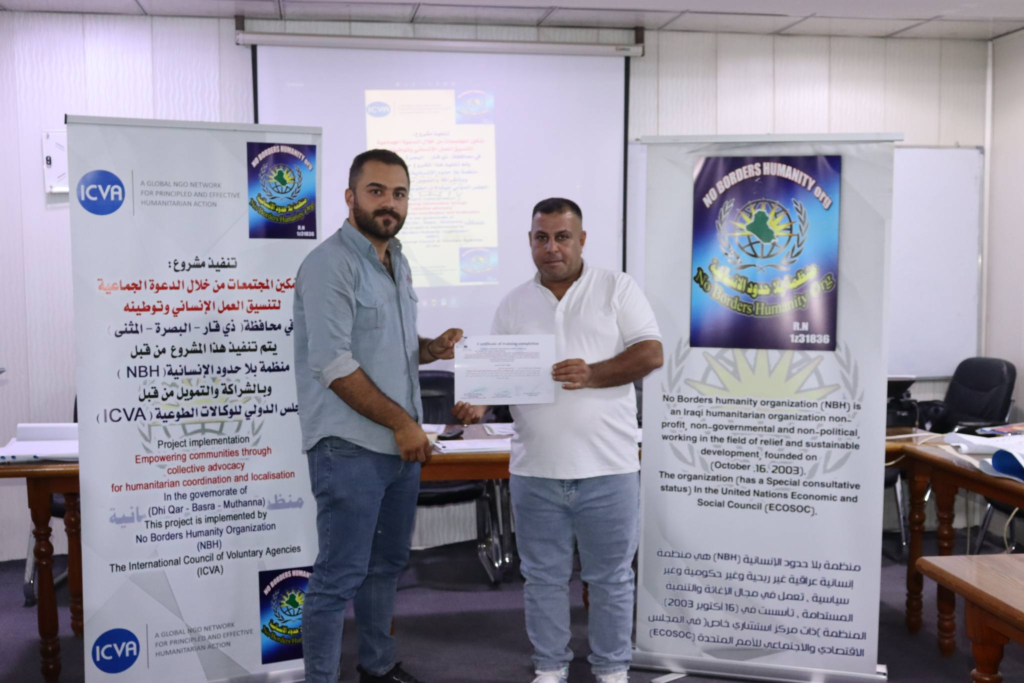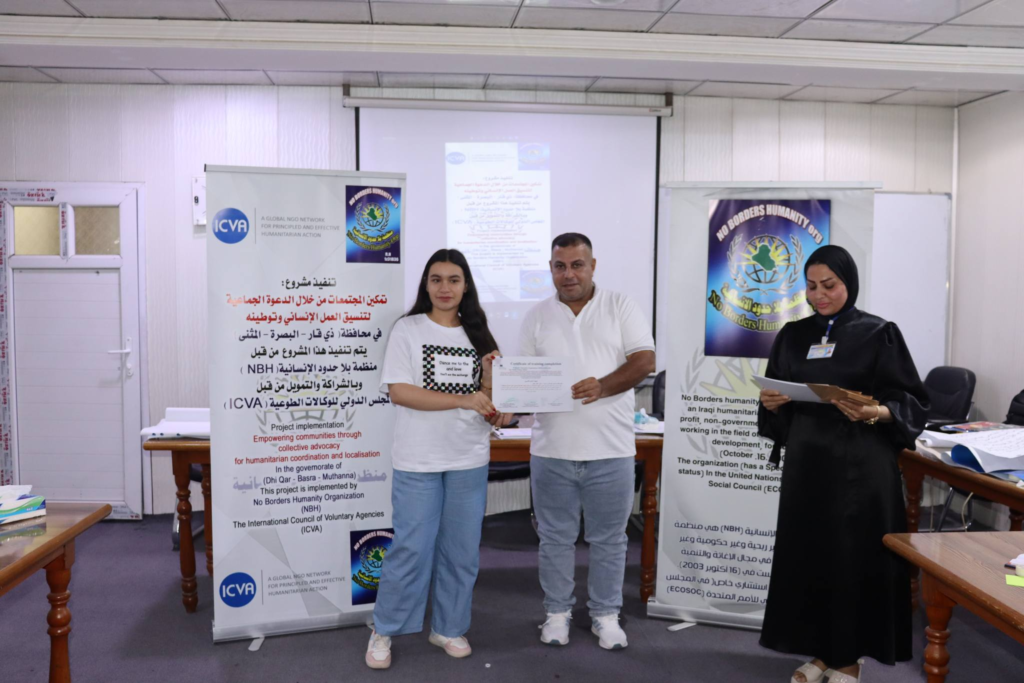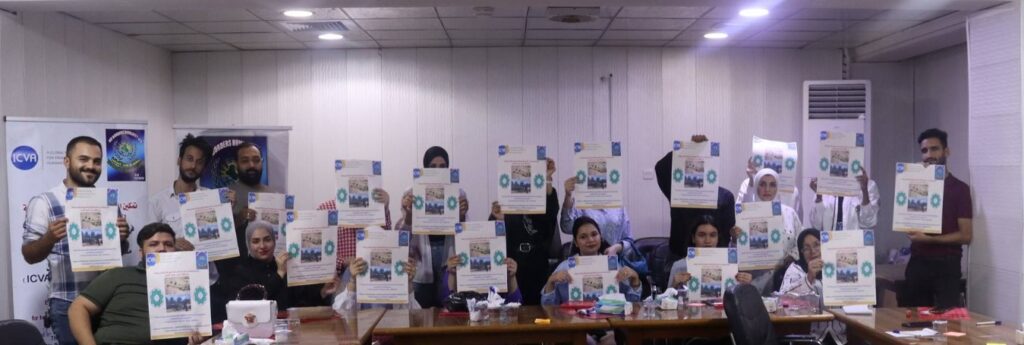Activity Report for the second workshop : first day
Date: June 21, 2024
Location: Basra Governorate
Organizing Entity: No Borders Humanity Organization (NBH) in partnership with the International Council of Voluntary Agencies (ICVA).
The activity aims
to enhance cooperation between the governmental sector and non-governmental organizations to improve humanitarian response and promote localization processes.
Workshop Objective:
The workshop aims to train participants on the essential skills for coordinating and localizing humanitarian work in Basra Governorate and to enhance the capacities of local organizations to better respond to humanitarian needs.
Attendance:
- Number of Participants: 20
- Participating Entities: Representatives of civil society organizations, community leaders, and volunteers.
Project Team:
- Project Manager: Mr. Ammar Al-Ghurabi
- Project Coordinator: Mrs. Sabreen Al-Waeli
- Training Expert: Mr. Salah Al-Moussawi
Activities and Events:
- Opening Session:
- Welcoming participants and providing an overview of the workshop objectives and program.
- Opening speech by Project Manager, Mr. Ammar Al-Ghurabi, highlighting the importance of training for skill development and enhancing local cooperation.
- Remarks by Project Coordinator, Ms. Sabreen Al-Waeli, thanking the attendees and emphasizing the importance of their active participation.
- Introductory Session:
- Introduction to the concept of humanitarian coordination and localization.
- Review of the main challenges and opportunities in Basra Governorate.
- Interactive Workshops:
- First Workshop: Training participants on how to develop local action plans for coordinating humanitarian efforts.
- Presented by Training Expert, Mr. Salah Al-Moussawi, and included group activities and interactive discussions.
- Second Workshop: Developing effective strategies for communication and coordination among various humanitarian entities.
- Included practical training sessions and application models.
- First Workshop: Training participants on how to develop local action plans for coordinating humanitarian efforts.
- Discussion Session:
- Open discussion on best practices for coordinating humanitarian work in Basra.
- Sharing ideas and suggestions to improve collaboration between local and international organizations.
Additional Details:
Dividing Participants into Work Groups:
- Participants were divided into four work groups, each consisting of five members.
- Each group worked on developing a local action plan to coordinate humanitarian efforts in their respective areas.
- Training materials and analytical tools were provided to each group to assist them in their tasks.
In-Depth Exploration of Negotiation and Advocacy Concepts and Tools:
- Negotiation Session:
- Mr. Salah Al-Moussawi presented a detailed session on effective negotiation techniques.
- The session included an explanation of negotiation tools such as power analysis, preparation for discussions, and reaching compromises.
- Practical negotiation exercises where participants were divided into pairs to work on realistic negotiation scenarios.
- Advocacy Session:
- Mr. Al-Moussawi explained the concept of advocacy and its importance in coordinating humanitarian work.
- The session discussed advocacy tools such as awareness campaigns, the use of social media, and forming local support groups.
- Practical exercises included developing advocacy plans for local campaigns based on community needs.
Results and Recommendations:
- Challenges: Identified several challenges facing humanitarian coordination, including resource shortages and slow communication between entities.
- Opportunities: Potential opportunities included strengthening partnerships between local organizations and increasing technical and logistical support.
- Recommendations:
- The need to provide advanced training courses in coordination and communication.
- Establishing a local communication network to exchange information and experiences.
- Providing additional resources to support humanitarian efforts in Basra.
Evaluation and Feedback:
- Participant Interaction: The interaction was positive and good from all participants, with significant engagement in activities and training sessions.
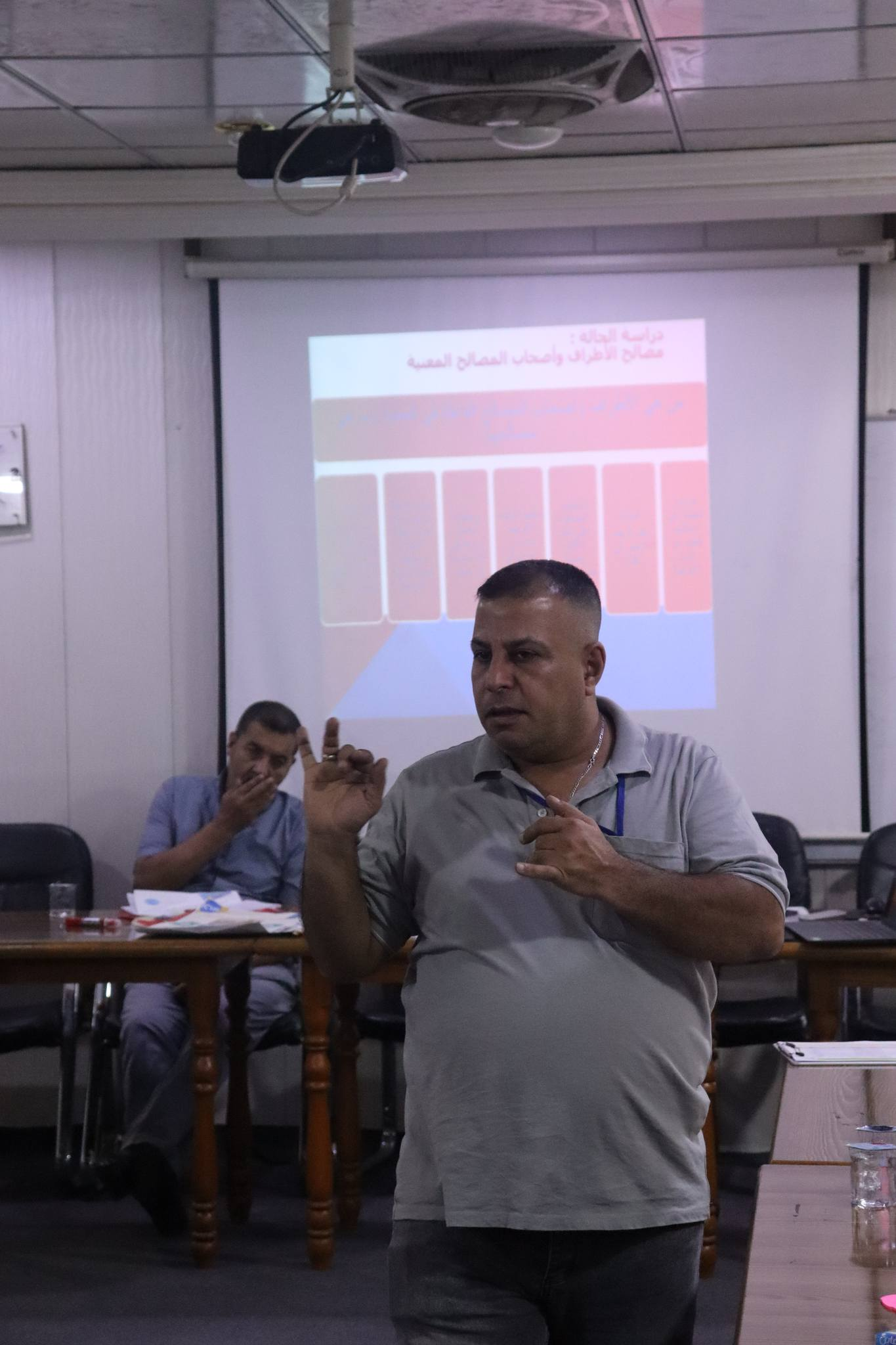
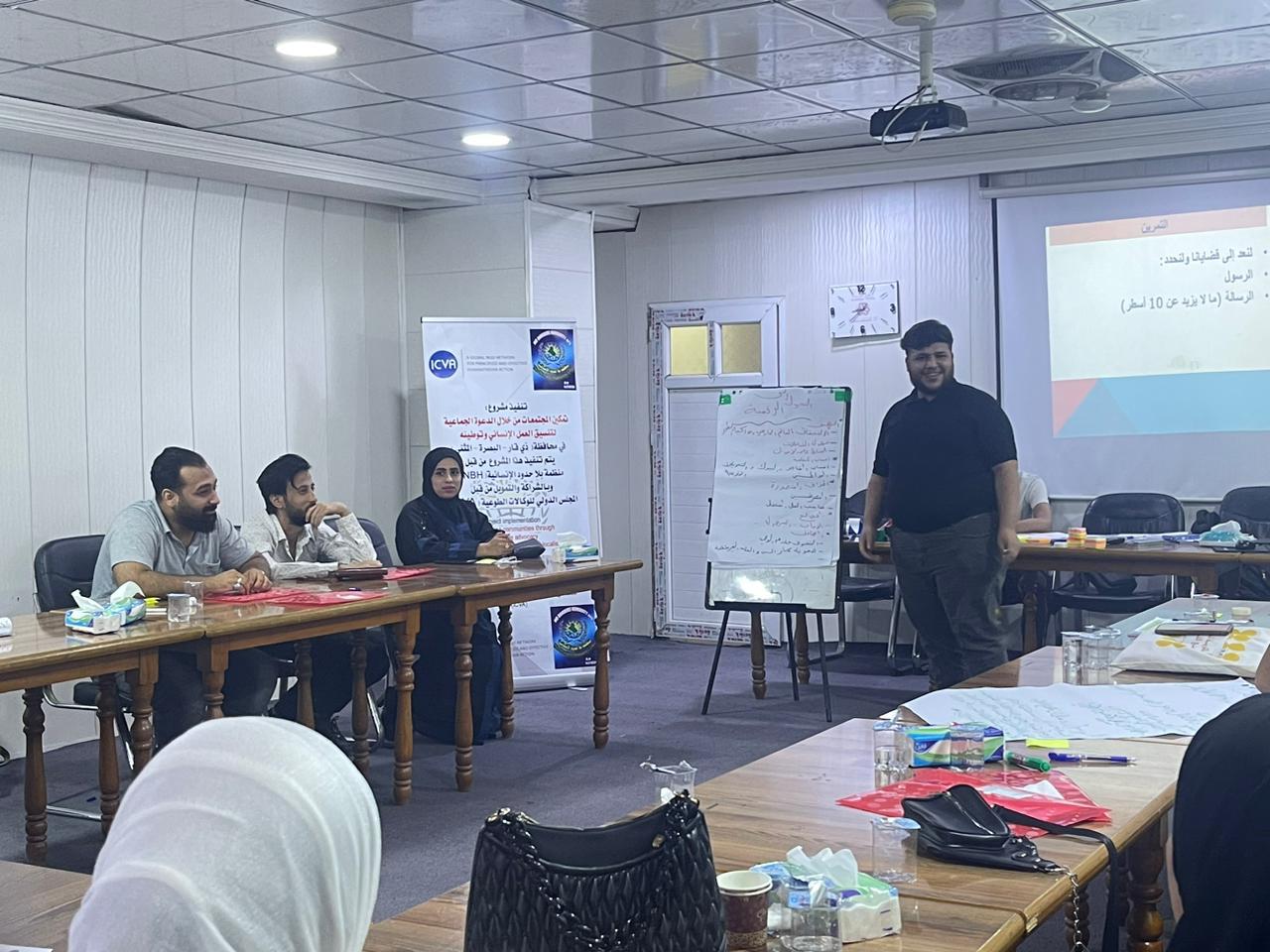
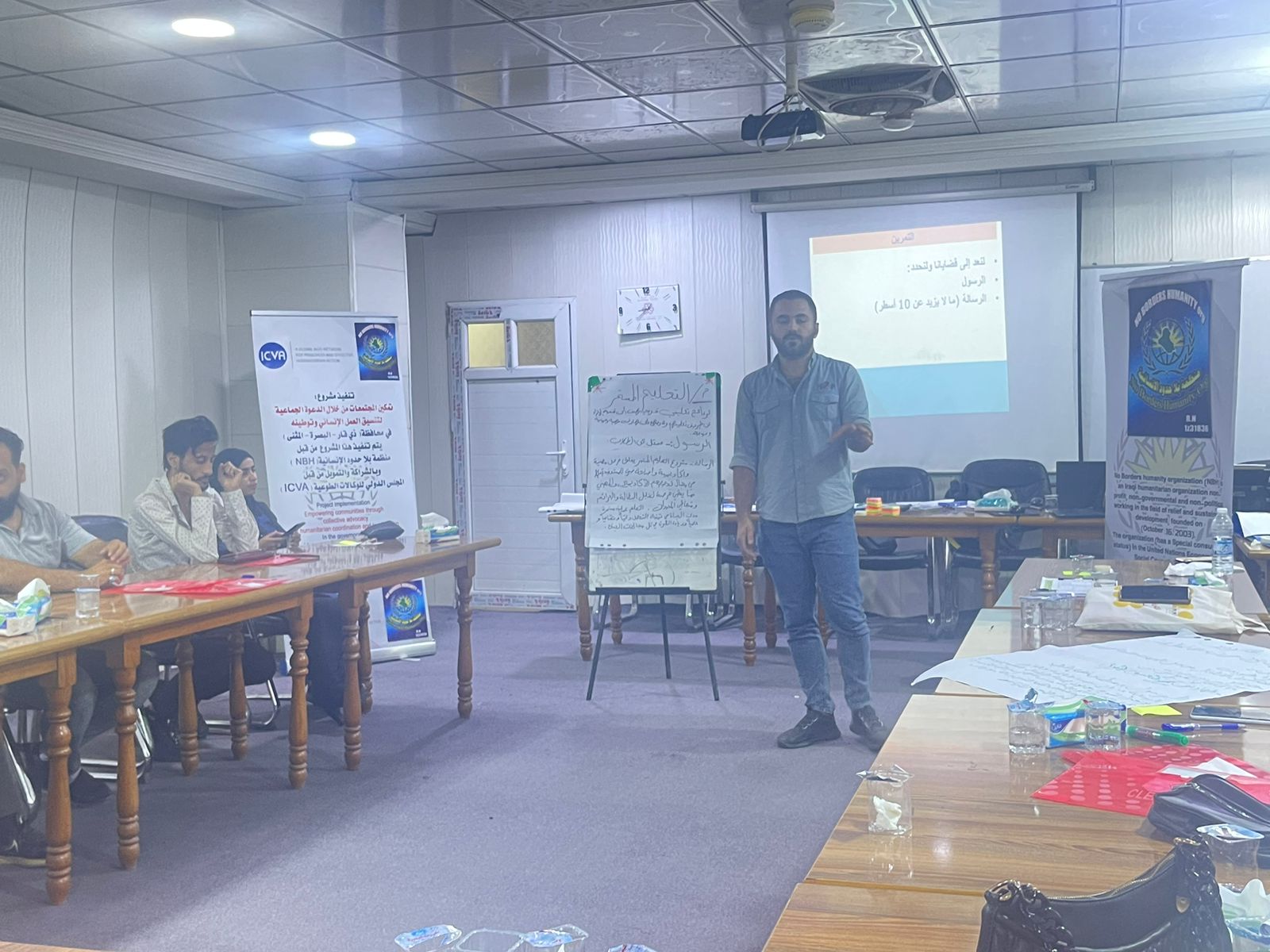
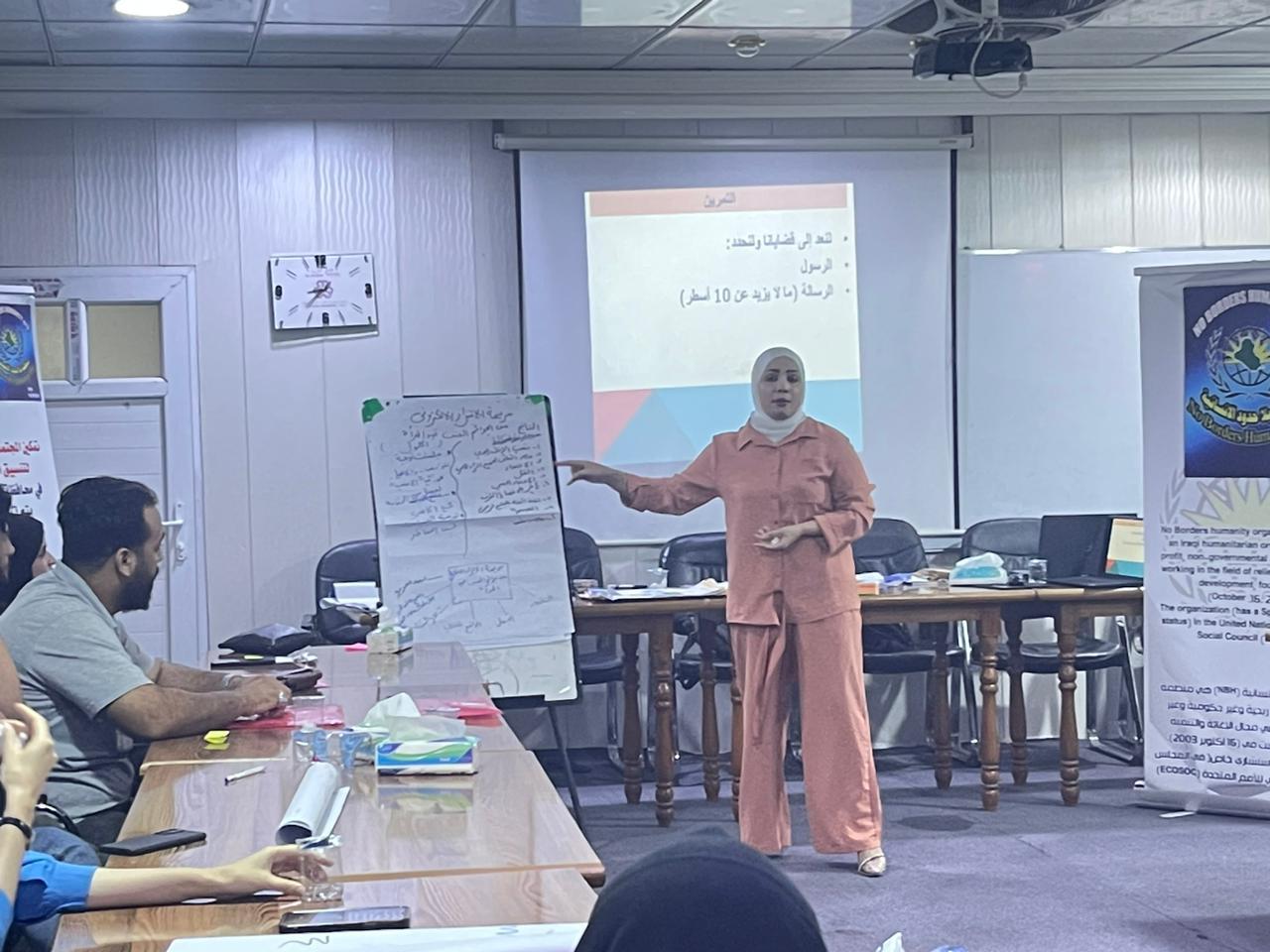
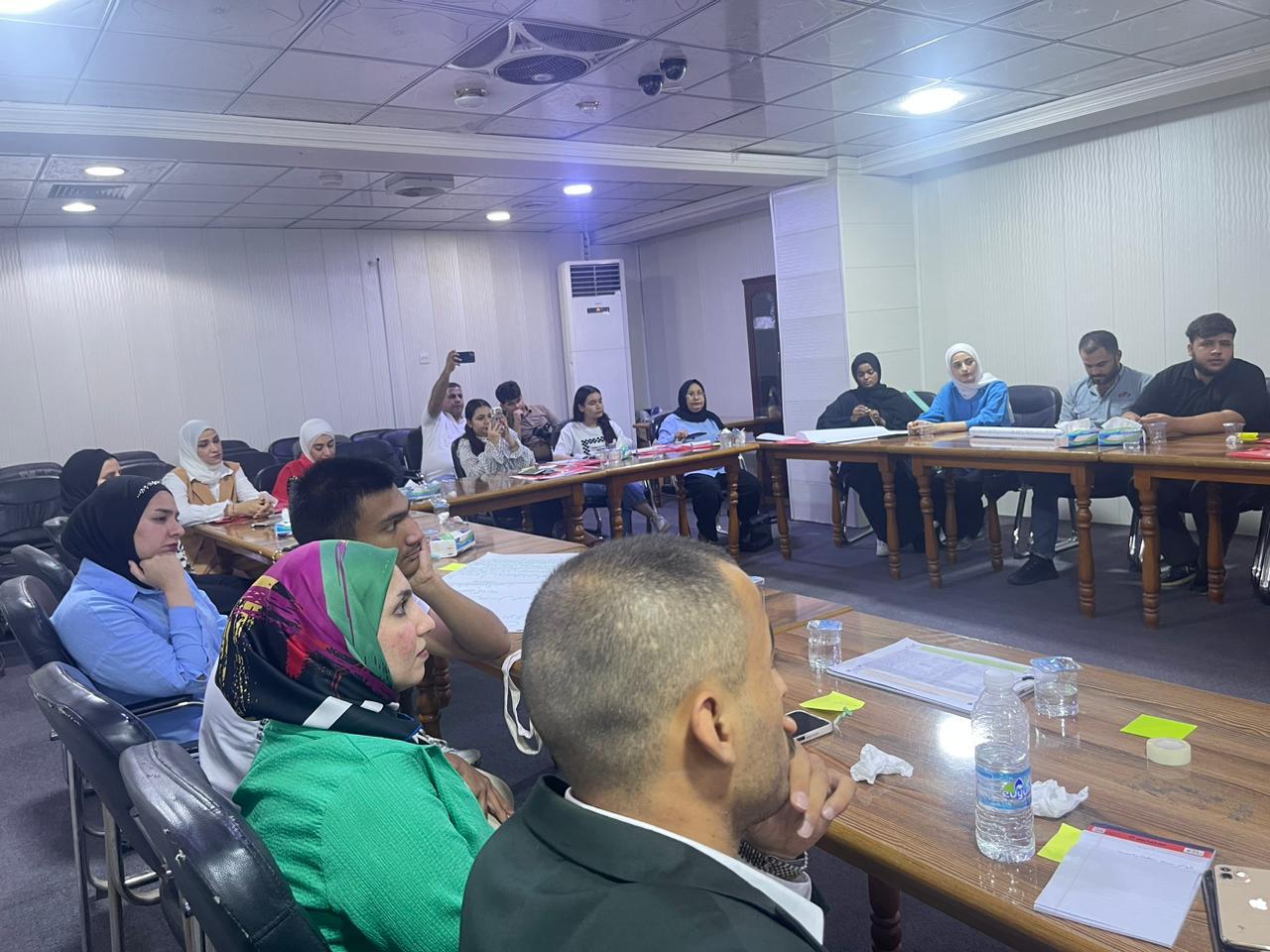
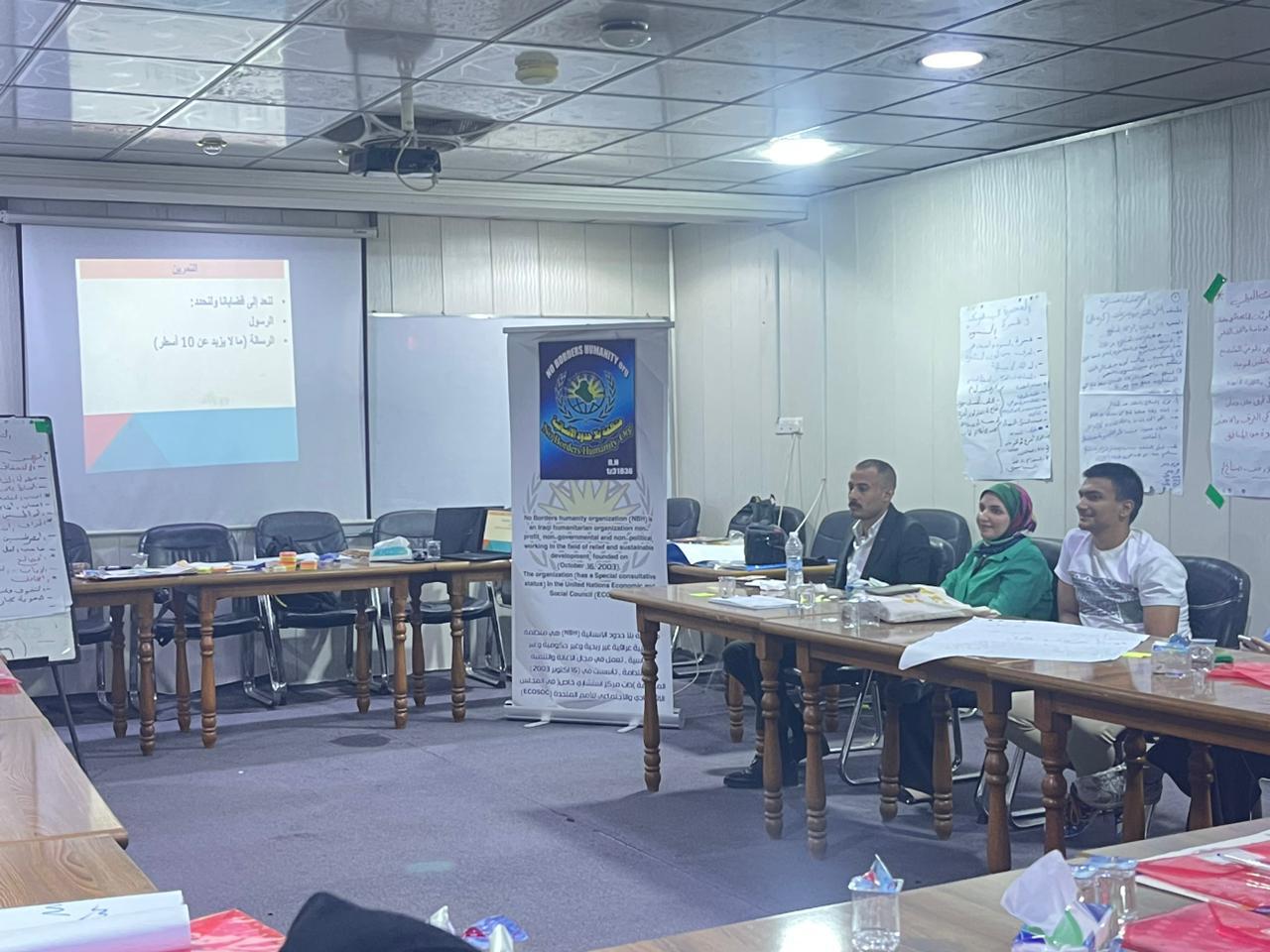
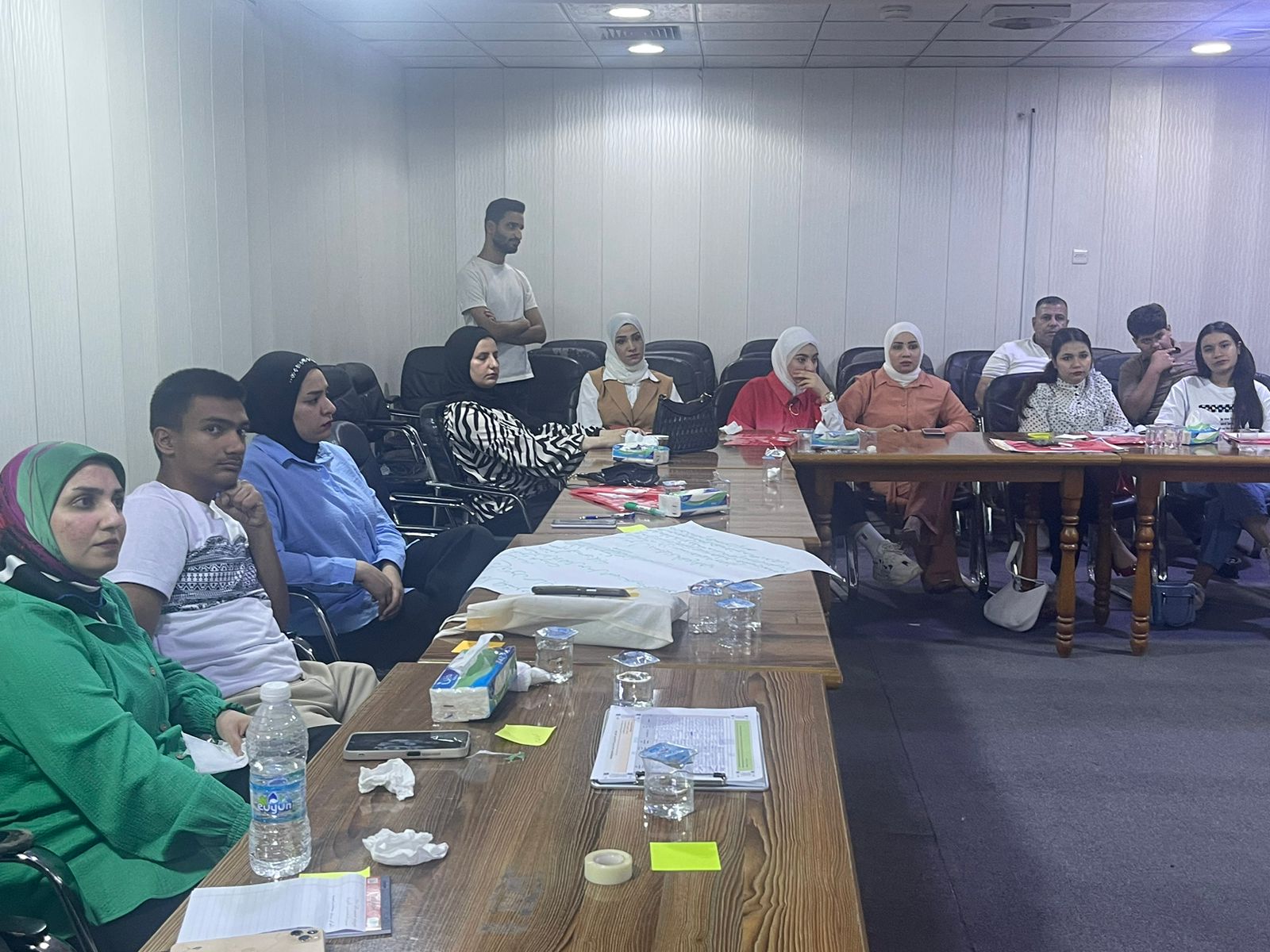

Activity Report of the Second Day of the Training Workshop
Date: June 22, 2024
Location: Basra Governorate
Organizing Entity : No Borders Humanity Organization (NBH) in partnership with the International Council of Voluntary Agencies (ICVA).
Workshop goal:
The workshop aims to train participants on the essential skills for coordinating and localizing humanitarian work in Basra Governorate and to enhance the capacities of local organizations to better respond to humanitarian needs.
Attendance:
- Number of Participants: 20 people
- Participating Entities: Representatives of civil society organizations, community leaders, and volunteers.
Project Team:
- Project Manager: Mr. Ammar Al-Ghurabi
- Project Coordinator: Ms. Sabreen Al-Waeli
- Training Expert: Mr. Salah Al-Mousawi
Activities and Events:
Opening Session:
Welcoming the participants and reviewing the objectives of the second day of the workshop. A brief review of the first day’s activities, focusing on the lessons learned and key points.
Training Session on Humanitarian Needs Analysis:
Introduction to the concept of needs analysis and how to prioritize humanitarian response. Group exercises to identify and analyze humanitarian needs in Basra Governorate. Discussion of results and recommendations based on needs analysis.
Interactive Workshops:
First Workshop: Designing and implementing effective humanitarian programs. Delivered by the training expert, Mr. Salah Al-Mousawi, and included practical activities and interactive discussions. Second Workshop: Performance evaluation, monitoring, and evaluation in humanitarian work. Included practical training sessions and evaluation exercises.
Discussion Session:
Open discussion on the challenges of evaluation and monitoring in humanitarian work. Sharing ideas and suggestions to improve the performance of local organizations in Basra Governorate.
Closing Session:
- Providing a summary of the second day’s activities and performance evaluation.
- Distributing participation certificates and thanking the attendees for their active contributions.
Results and Recommendations:
Challenges: New challenges were identified in needs analysis and performance evaluation, including lack of accurate data and difficulty accessing certain areas. Opportunities: Potential opportunities include strengthening cooperation with academic institutions for data collection and analysis, and developing a unified performance evaluation system.
Recommendations:
Provide additional training on humanitarian data collection and analysis. Strengthen partnerships with academic and research institutions to improve data accuracy. Develop a unified performance evaluation system to enhance the quality of humanitarian response.
Evaluation and Feedback:
Participant Interaction: The interaction was positive and fruitful from all participants, with active contributions in discussions and practical activities. Overall Evaluation: The second day was positively evaluated in terms of organization and training content, with participants emphasizing the importance of such training to improve their performance.
Conclusion:
The second day of the training workshop was successful in achieving its goals, enhancing participants’ capacities in humanitarian needs analysis and performance evaluation. We hope these training sessions continue to support and develop the capacities of local organizations in Basra Governorate to improve their response to humanitarian needs.
